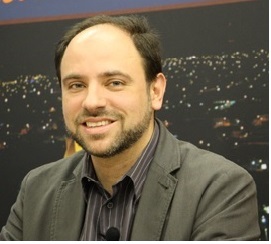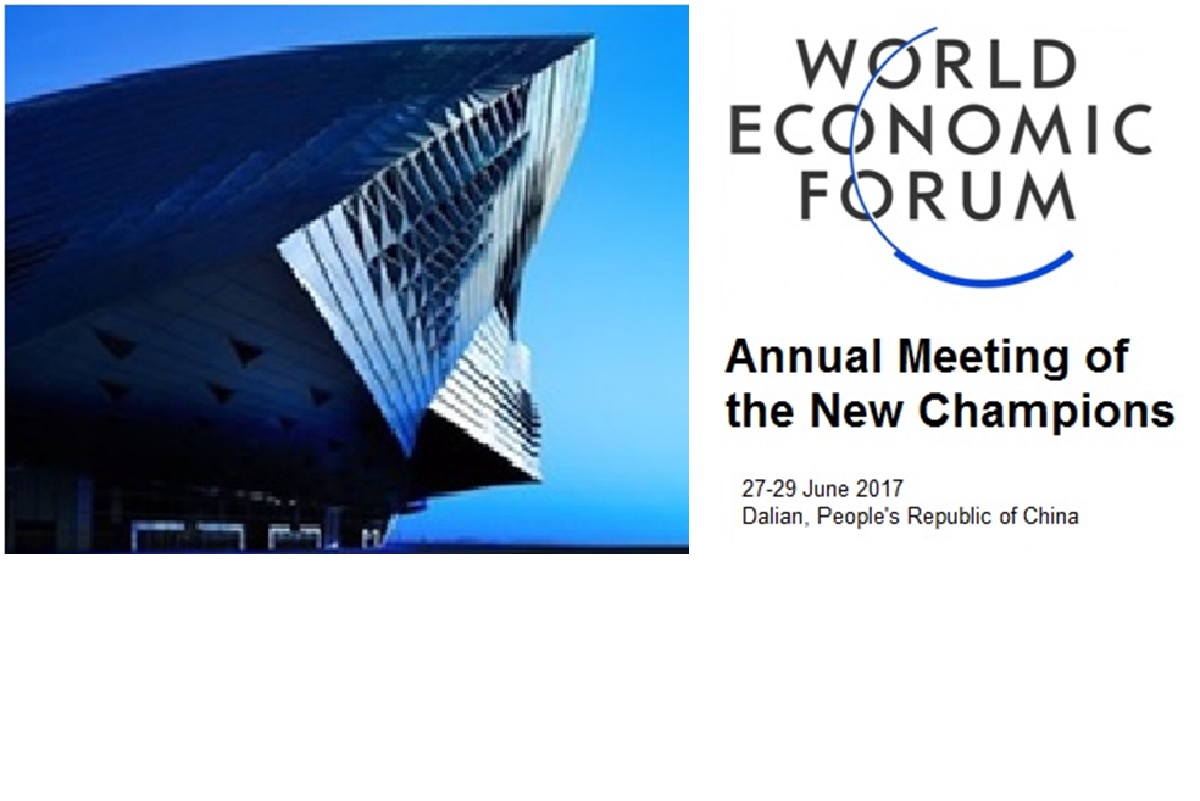Professor Dr. Rafael Guido, from the Crystallography Group of the São Carlos Institute of Physics (IFSC / USP), will participate in the Annual Meeting of the New Champions, to be held June 26-29 in Dalian, China. The initiative, aimed only at guests, is held annually by the World Economic Forum, a non-governmental organization that studies new trends in the world in all areas (health, economy, technology, environment, etc.).
With around 1250 guests, this edition of the meeting will bring together civilians and political, business and academic leaders so they can discuss and find ways of cooperation and strategies to deal with the challenges of the future by collaborating with world economic development and growth.
The theme of this edition of the meeting will be Achieving Inclusive Growth in the Fourth Industrial Revolution. The connectivity between different areas, such as Physics and Biology, is creating new digital methodologies, and this revolution, says Rafael Guido, is part of what is called the Fourth Industrial Revolution, in which the production line takes place through new technologies, such as Artificial intelligence systems. The First Industrial Revolution was established with the use of water and steam-based machinery for large-scale production; The second corresponded to the use of electric energy; Already the The third, that was being extinguished, arose from the application of electronics and information technologies.
 Prof. Guido is graduated in Pharmacy-Biochemistry from the Paulista State University “Júlio de Mesquita Filho” (UNESP) and a PhD in Applied Physics from the IFSC / USP. He holds a PhD extension from the Philipps-Universität Marburg (Germany) and a postdoctoral degree from USP. He will be the only Brazilian researcher to participate in the event as a young scientist. He will be able to present the work he has developed at the IFSC, where, through the Center for Research and Innovation in Biodiversity and Drugs (CIBFar-FAPESP), he studies strategies to try to combat the parasite that causes malaria, an infectious tropical disease that is transmitted to humans through the bite of the host mosquito Anopheles (female). According to the World Health Organization (WHO), in 2015 there were approximately 212 million cases of malaria and an estimated 429 thousand deaths from the disease.
Prof. Guido is graduated in Pharmacy-Biochemistry from the Paulista State University “Júlio de Mesquita Filho” (UNESP) and a PhD in Applied Physics from the IFSC / USP. He holds a PhD extension from the Philipps-Universität Marburg (Germany) and a postdoctoral degree from USP. He will be the only Brazilian researcher to participate in the event as a young scientist. He will be able to present the work he has developed at the IFSC, where, through the Center for Research and Innovation in Biodiversity and Drugs (CIBFar-FAPESP), he studies strategies to try to combat the parasite that causes malaria, an infectious tropical disease that is transmitted to humans through the bite of the host mosquito Anopheles (female). According to the World Health Organization (WHO), in 2015 there were approximately 212 million cases of malaria and an estimated 429 thousand deaths from the disease.
In the event, the professor of the IFSC will speak mainly about a project that has led together with Prof. Dr. Luiz Carlos Dias, from the University of Campinas (UNICAMP), in partnership with the non-governmental organization Medicine for Malaria Venture (MMV), which aims to develop drugs to combat malaria.
Guido explains that most Malaria cases occur in regions of less developed countries, where the financial condition is an obstacle to obtaining medicine for the treatment of the disease. Therefore, according to the IFSC professor, there is no great financial motivation for the industry to develop new drugs to fight the disease. For him, in this sense, initiatives such as MMV are fundamental and make prospects for the development of new medicines “interesting”, especially when we think about the Fourth Industrial Revolution: “MMV itself finances academic research, which receive pharmaceutical industries consulting, what may facilitate the development of efficient and cost-effective new drugs for the treatment of malaria”. Thanks to this partnership, Guido believes that, within the next few years, there will be a new molecule candidate for a new drug dedicated to the eventual treatment of patients affected by the pathology.
For the professor, the realization of the integration between academy, industry and government may be one of the consequences of the Annual Meeting of the New Champions, being essential for the Brazilian economic system, since by improving communication between these sectors. In his opinion, to train new researchers, generate employment for the Brazilian population and put the country on a new level of development of technological innovations, including in the strategic area of new drugs.
Source: Assessoria de Comunicação – IFSC/USP





